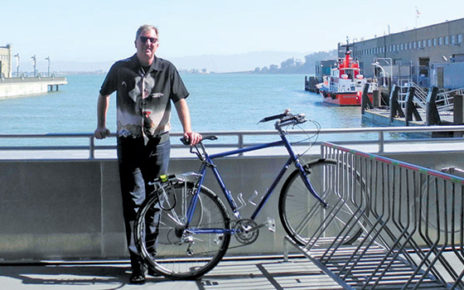The additional funding will provide $5,000 per truck for 1,216 additional trucks to install particulate matter filters on their rigs, and provide $50,000 for owners of 103 old trucks to purchase newer models. ARB will continue to work with its local, port and federal partners to seek additional compliance assistance funding. ARB will also consider regulatory changes to provide compliance flexibility while seeking additional matching funds from other sources.
Truckers who made timely application for retrofit or replacement funding to the Bay Area Air Quality Management District in 2008 and 2009, but were denied funding when the money ran out, and who will be unable to enter the port when the new rule goes into effect, are eligible for the grants.
“With today’s announcement, we are helping keep more than 1,200 truckers operating at the Port of Oakland,” said ARB Chairman Mary D. Nichols. “This is good news for both the trucking community and those that suffer from poor air quality in West Oakland. We will work tirelessly with the Bay Area Air District and port to get all of the applications processed and get the money out the door quickly.”
The average cost of a particulate matter filter is $16,000, with the devices removing 85 percent of the diesel emissions from older trucks. With today’s announcement, state, local and federal air agencies and ports now have provided $37 million in funding to help clean up more than 2,300 trucks at the Port of Oakland. Overall, ARB, local air districts, ports and the U.S. EPA have contributed more than $196 million statewide to help port truckers meet the 2010 requirements, half of which came from voter-approved Proposition 1B funds.
“ARB and the District scoured all existing funds and were able to come up with an additional increment to ease the cost of compliance with this important public health rule,” said Nichols. “This funding will help the hundreds of truckers in the area who need a boost in cleaning up their trucks, create jobs in the green collar work force and, most importantly, provide crucial public health benefits.”
ARB passed the port truck rule in December 2007, which requires truck owners operating in and out of ports and intermodal rail yards to retrofit and replace their trucks over the next several years. ARB estimates that the regulation will prevent 580 premature deaths over the next five years, with benefits being the most dramatic in the communities where port trucks are heavily concentrated. ARB passed an additional rule last December that will clean up the remaining truck fleet operating in California, estimated at one million vehicles.
The ARB listed diesel particulate matter as a toxic air contaminant over a decade ago in order to protect public health. Exposure to diesel soot emissions can increase the risk of lung cancer, plus asthma, bronchitis and other respiratory diseases. Through its diesel risk reduction strategy, ARB plans on reducing toxic diesel emissions in the state 85 percent by the year 2020.

